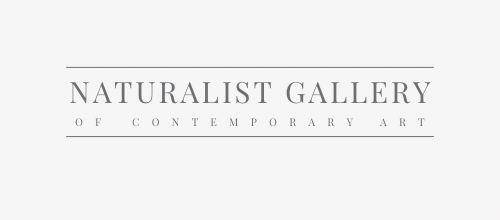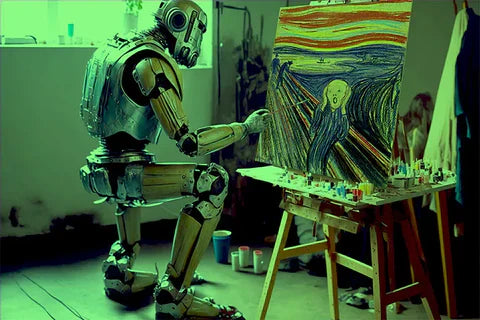Artificial intelligence (AI) has rapidly infiltrated the art world, sparking debates over its ethical implications and the future of human creativity.
The integration of AI in art creation presents ethical challenges concerning authorship, originality, and the preservation of human creativity.
As AI-generated art becomes more prevalent, questions arise about authorship, originality, and the potential displacement of human artists.
Explore our curated selection of contemporary artists from around the globe.
Naturalist Gallery offers artist representation internationally. Apply your art.
Authorship and Ownership
The integration of AI in art creation blurs traditional lines of authorship. When an AI system generates an artwork, determining the rightful owner becomes complex. Is it the programmer who developed the AI, the user who input prompts, or the AI itself? Legal frameworks, such as the U.S. Copyright Office's stance, currently do not recognize AI as an author, leaving AI-generated works without traditional copyright protection.
Impact on Human Creativity
The rise of AI-generated art raises concerns about the potential erosion of human creativity. Artists fear that AI could replicate their styles without consent, leading to job displacement and a devaluation of human-made art. The Media, Entertainment & Arts Alliance (MEAA) has called for regulations to protect creators' rights and ensure transparency in AI data usage.
Originality and Authenticity
AI's ability to produce art that mimics human styles challenges notions of originality and authenticity. Critics argue that AI-generated art lacks the emotional depth and intentionality inherent in human creations. However, proponents suggest that AI can serve as a tool to enhance human creativity, offering new avenues for artistic exploration.
Ethical Considerations
The ethical dilemmas surrounding AI in art are multifaceted:
-
Consent and Compensation: AI systems often train on existing artworks without artists' consent, raising issues of intellectual property theft.
-
Bias and Representation: AI-generated art can inadvertently perpetuate biases present in training data, leading to skewed representations.
-
Transparency: There's a need for clear disclosure when AI is used in art creation to maintain trust and authenticity.
Navigating the Future
As AI continues to evolve, the art community faces the challenge of integrating technology without compromising human creativity. Establishing ethical guidelines, legal frameworks, and fostering collaboration between artists and technologists are crucial steps toward a harmonious coexistence of AI and art.
Learn more About Naturalist Gallery of Contemporary Art.
You may also find the following articles helpful:
The 14 Essential Artists of Impressionism
Expressionism: 20 Iconic Paintings & Their Artists
Renaissance Art: Origins, Influences, and Key Figures
Classical Art Movement: Exploring the History, Artists, and Artworks
Figurative Art: Understanding, Collecting, and Appreciating the Style
Daily Routines of Famous Artists: Learn from the Masters
Top 12 Controversial Artworks That Changed Art History









1 comment
Aesthetic Ai is the future, join or be left behind.